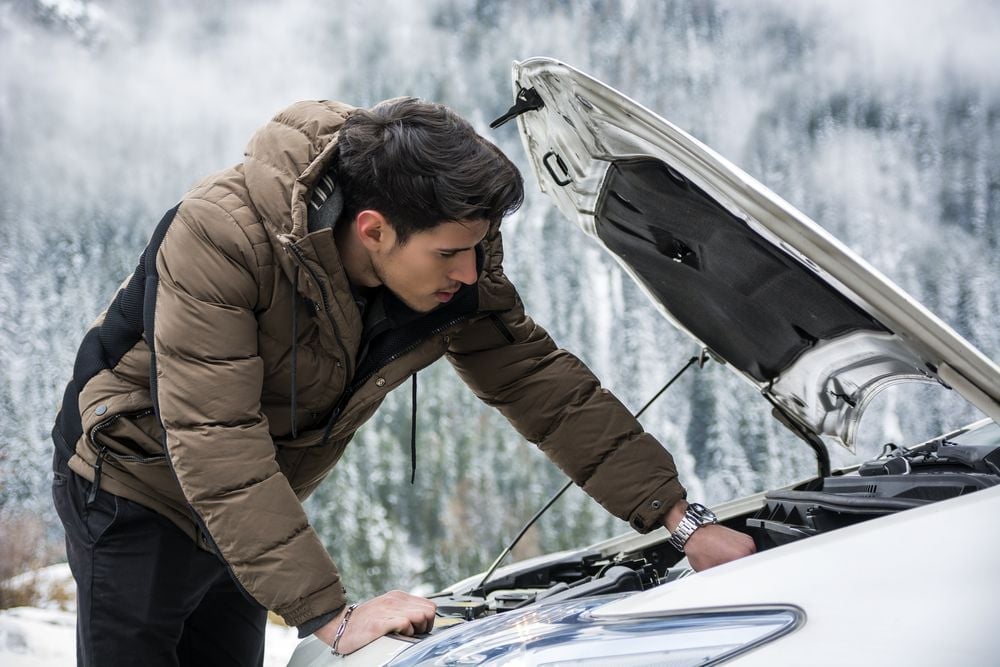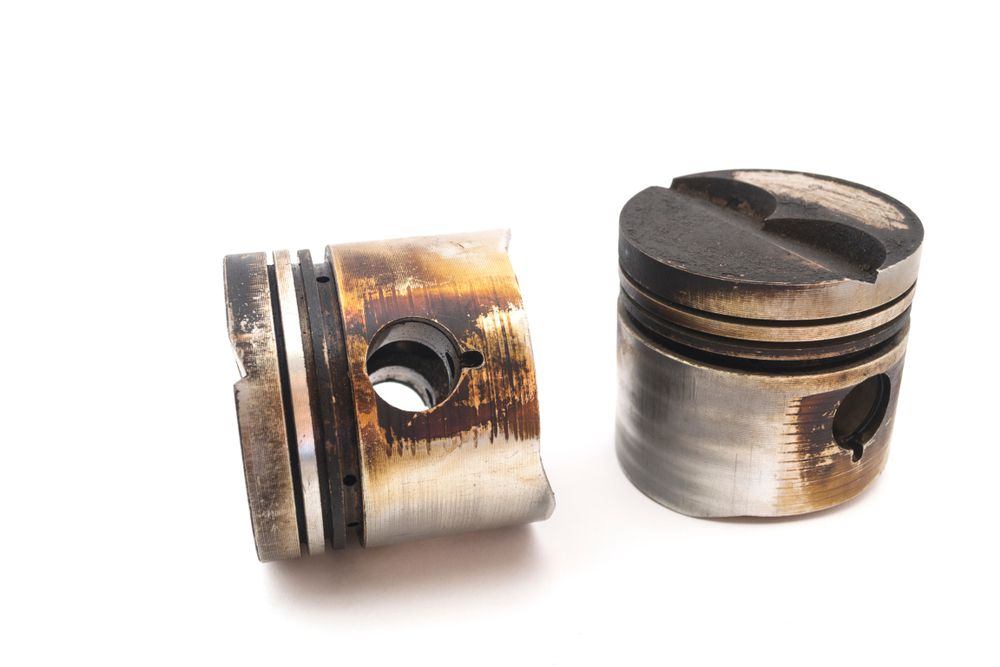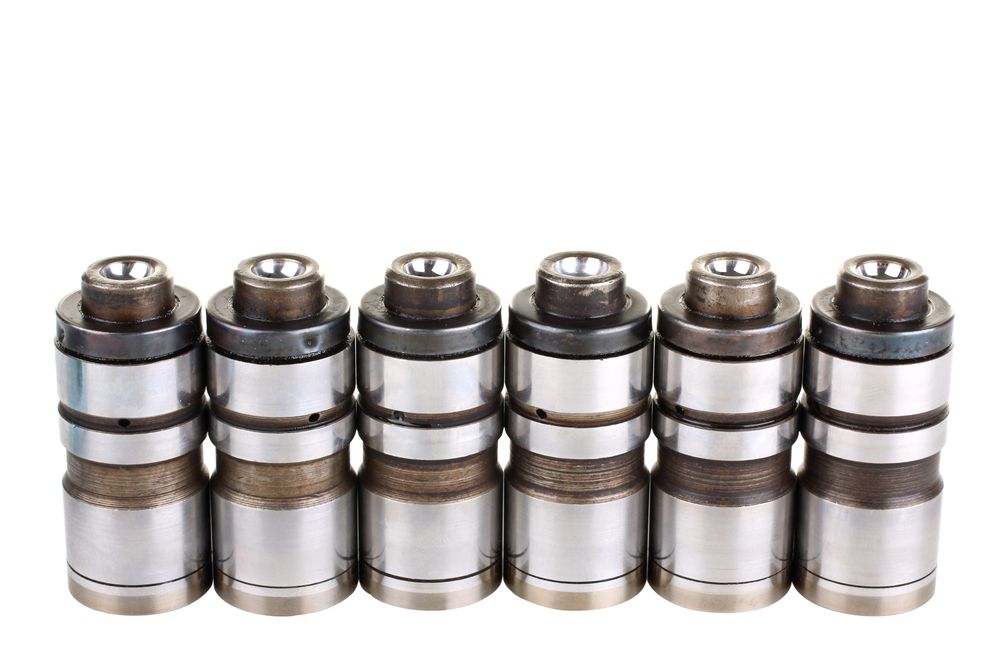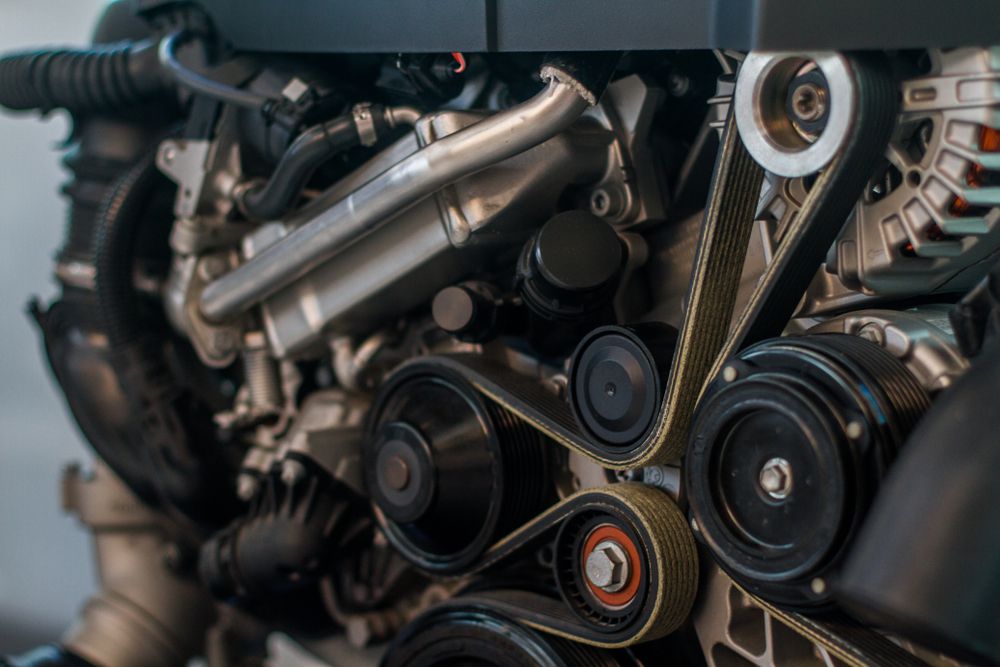
If your car makes noise when starting then goes away, it's probably coming
from your engine components.
Engines aren't made to last forever, and a knocking sound or rattling
noise on a cold start might be a warning sign for deeper issues.
From piston slaps to sticky lifters to worn engine components to
actuator damage, many problems cause irritating engine noise.
Below we'll discuss the different sounds, causes, and solutions so you can
eradicate the engine rattle or knock for good.
 Car engine making noise when it is cold.
Car engine making noise when it is cold.
Engine Knock When Cold Goes Away When Warm
Hearing a knock in the engine bay after a cold start is always scary, but
it becomes less sinister once you realize the noise goes away once the
engine heats.
However, if it's a regular issue, you should want to get it fixed.
So, we've compiled the five most usual causes of a loud knock at startup
then goes away.
#1 Piston Slap
Despite the fact it won't typically develop in engines with fewer than
150,000 to 200,000 miles on the clock, piston slap is perhaps one of the
most common causes of cold start engine knocks.
It occurs when the cylinder wall and piston don't have the tight tolerances
found in a new car engine, resulting in a rocking piston instead of a
smooth up-and-down motion.
The knocking sound occurs whenever the piston hits the cylinder wall at an
angle.
A piston slap happens for a few reasons, including:
-
Physical wear to the cylinder walls
-
Design flaw
-
Cylinder is out of round
Properly machined and tolerated cylinder bores and pistons won't cause car
engine knocks, which tends to be why the piston slap stops a few moments
after startup.
If the clearance between the two engine components is minimal, you can
expect the rod knock to disappear once the piston head has heated and
expanded.
 Worn pistons may lead to piston slap.
Worn pistons may lead to piston slap.
Solving The Piston Slap
While the correct oil pressure often solves the issue, it doesn't always,
so you'll have to pick from one of two options to eradicate the knocking
sound for good.
Your first option is to deal with it.
The piston slap isn't a disaster waiting to happen, allowing you to stick
with the rod knocks while the engine is cold.
But the longer you leave it, the more damage caused to the cylinder walls
and piston skirt.
Your second option is to do an engine rebuild.
We'd argue this is the best solution, but we can't deny it's expensive.
Rebuilding the engine allows you to inspect other engine parts and replace
them accordingly.
If you've never rebuilt an engine before, we suggest leaving it up to the
professionals to ensure you don't cause more harm than good.
#2 Sticky Lifters
While often referred to as an engine knock, this cold start issue tends to
make more of a ticking sound.
Your car's engine might be struggling with a sticky valve lifter for many
reasons, including:
-
Type of oil used —
Heavier oil takes longer to make its way around the engine. If you're
using higher viscosity engine oil than usual, that may have caused your
sticky valve lifter issue.
-
Type of oil filter —
Using a filter without an anti-oil drain back or failing to invest in a
high-quality oil filter could cause this frustrating cold start
problem.
-
Mileage —
Engine noise can also occur in cars with high mileage since there are
increased tolerance shortfalls. An excellent stop-gap solution is to
use heavier engine oil as a "cushion."
-
Cam stopping position —
The cam's position when the engine stops can cause oil drains in valve
lifters. But since this won't create engine noise all the time, it's
not worth the worry.
-
Recent work meant moving them —
Fiddling with the valve cover components and failing to reinstall them
in the same partner pairs can cause your car's engine to knock on
startup.
 Valve lifters can make a ticking sound.
Valve lifters can make a ticking sound.
Solving The Sticky Valve Lifters
Are your sticky lifters taking increasingly long periods to stop making
noise?
It's time to replace them.
While not as expensive as conducting a complete engine rebuild,
professional replacements aren't cheap.
If you decide to do it yourself, make sure you replace the valve lifters,
springs, and pushrods simultaneously with the right tools.
#3 Worn Accessory Components
Often mistaken for an engine knock on startup, a worn power steering pump,
water pump, exhaust manifold, or alternator can emit cold start noise.
Thankfully, you don't have to worry about these sounds until complete
component failure occurs.
#4 Main Bearing Wear
High mileage is usually the culprit behind main crank bearing wear.
As it deteriorates, the crankshaft doesn't have the necessary tolerance,
hitting the thrust bearing consistently for a few seconds.
Only when the engine warms and the crank heats does the openness fill,
temporarily stopping the knocking sound.
Once the car engine cools, the issue reoccurs, meaning it probably won't
happen after a brief stop.
Solving The Main Bearing Wear
Luckily, it won't cause other engine components to fail.
The sound is just annoying.
That said, you can prevent it from worsening by keeping your engine oil
topped up and ensuring the bearing doesn't leave metal flakes in the oil
pan.
#5 Oil Drain-Back
Oil drain-back is an ultra-common cause of an engine knock on startup then
goes away.
The oil filter has a check valve that stops oil flowing from the engine
block backward through the components.
If the valve doesn't seal properly, the pump may not distribute the oil
through all the necessary engine parts, causing considerable noise until
the oil has been disbursed throughout the entire car engine, cushioning the
components.
Solving The Oil Drain-Back
We suggest investing in a high-quality oil filter to reap the benefits of a
premium check valve that keeps the oil in the engine block ready for
startup.
Single Knock When Starting Car
A single knock upon startup is an easier puzzle to solve as there are only
two probable causes.
The startup noise occurs due to a faulty wire or a failed fuel injection.
If the knocking sound persists, your fuel injection system likely needs
replacing.
If it happens occasionally, you should check the wires.
Either way, we recommend taking your car to a mechanic for a professional
diagnosis and remedy.
Rattling Noise When Starting Car Cold
A rattle noise may occur on a cold start because there isn't any oil at the
top of your engine when you first crank it.
Without an oil supply, the variable valve actuator can't move the camshaft,
consequently locking it into place.
As the problem persists, the variable valve actuator wears and begins
creating that brain-scrambling rattle noise.
The severity of the pin's damage dictates how many seconds the rattling
noise will persist.
Usually, you can expect it to go away after two seconds, but if not, it's
time to replace the actuator.
What Causes Actuator Damage?
The most common cause of damage that leads to an engine rattle in cold
weather is the duration between oil changes.
Failing to replace your oil enough leads to extra strain on the variable
valve actuator, resulting in excessive wear.
Car Makes Loud Noise When Starting And Accelerating
Sometimes your car may make a loud sound upon startup then goes away but
returns when accelerating.
Diagnosing the problem requires considering the type of sound you're
hearing.
 Loose serpentine belts can make a squealing noise.
Loose serpentine belts can make a squealing noise.
Squealing
Hearing a squealing sound when accelerating points to a deteriorating or
loosening drive belt or failing pulleys.
While not the greatest news, the squealing should cease once you replace
the belt — although the problem can run deeper than that.
Roaring
If the roaring sound worsens with increased acceleration, it's probably a
transmission or exhaust system issue.
Chirping
A strange chirping sound at low speeds signals an axle issue.
We suggest taking your car to the garage as soon as possible because axle
problems can cause your wheels to lock or loosen!
Slapping
Rhythmic slapping from under your hood when accelerating means you have a
damaged tire.
Fix it immediately by pulling over — you'll face massive penalties if
you're found driving with deteriorated tires.
Rattling
A rattling noise while accelerating is a complex problem since many
potential causes exist.
It could be the catalytic converter, exhaust system, oil levels, or other
components.
But if it's coming from inside the vehicle, there is no need to panic.
You're likely hearing something small jostling around in the glove
compartment or trunk.
Why Does My Car Sound Like It's Struggling To Start?
If your car sounds (and feels) like it's struggling to start, it's usually
a problem with the alternator or battery.
You can tell which component is the culprit by listening — is there rapid
clicking or rumbling?
The latter tells you it's the alternator, whereas the former implies you
have a battery problem.
Conclusion
When your car makes a knocking noise on startup then goes away, it's often
caused by piston slaps, sticky lifters, worn accessories, main bearing
wear, or drain back.
However, rattling sounds are usually due to actuator damage.
To diagnose your car's engine problem, listen carefully to the noises it
makes when you next start your vehicle.